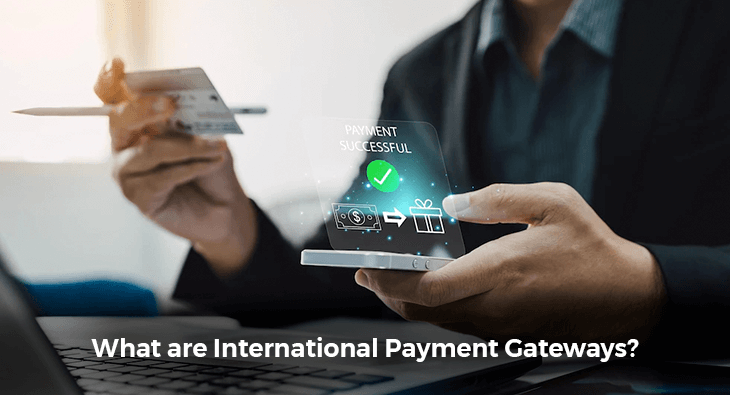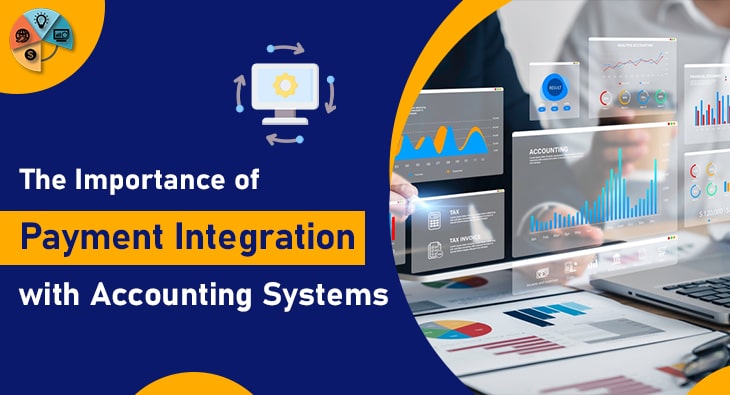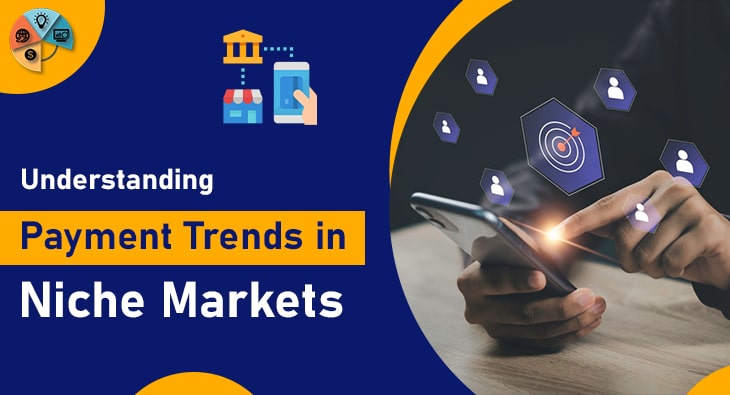Payment gateways verify a buyer’s credit card information and then transfer the information through their banking institution and their business’s bank in order to authorize the transaction. If a customer or the bank they use is located in a different country the international payment gateways become required to manage the process.
Processing transactions is simple for sales in the US since there is only one single language and (typically) only one country where you can declare sales tax.
However. SaaS sales extend far beyond only one country. SaaS’s inherently global nature SaaS implies that users can sign up in any part of the world. This is where things get complicated.
To cater to a global marketplace it is essential to accept payments from nearly any country and accept different currencies and languages. International payment gateways can help you accomplish this.
Let’s review how domestic and international sales methods are compared.
Selling in your home market
Selling products or services in your country is an easy alternative. As an example, suppose your business only sells to customers from the US and they pay in US dollars.
Your requirements for payment could appear like:
- Support for one currency.
- Support for one option for payment, e.g. accepting credit cards.
- There’s no need to localize – everything is in English.
- There is no need to handle foreign banks or manage International payment processing.
- The most difficult part is tackling US revenue tax, which differs in each US state (you’ll have to sign up and file for and pay sales tax in each state – and payment gateways do not usually take care of these tasks to your benefit).
Let’s see the way international selling compares to local selling.
Selling to international markets
Let’s say that you’re a SaaS business that’s based outside the US selling your software to international customers who would prefer to purchase in a range of currencies.
SaaS businesses operating on a global scale should be prepared for international payment from the beginning. Your payment process must be as effective for customers from all over the world customers like it would be for customers down the street.

Email us anytime!
Email customer service 24/7

Call us anytime!
Reach customer care 24/7 at +1 (727) 330-3944
But managing the international payment process isn’t an easy task. At Paddle, we speak to many SaaS founders every month about their challenges in dealing internationally with payment.
Selling SaaS across the globe comes with its own different problems and demands.
First of all, the software is completely borderless which means you’ll need to be able to service customers in different languages, and currencies, along with tax systems.
Another big issue is dealing with sales tax liabilities. In recent times the sales tax is calculated based on your location for the client regardless of where your company is located.
Take a look at our other blogs
- Forex Merchant Account Solutions | Merchant Stronghold
- How Does Inflation Affects Credit Card Processing
- Web Hosting Merchant Account
- Looking for a Merchant account? Here are Some Questions to Ask
WhatWhatYour One-Stop Solution For International Payment Gateway
The Payment Gateway is A service that facilitates the transaction of payment from the retailer to the customer. It is a system of computer-based processes that process. Verify and approve or deny credit card transactions that are performed for the benefit of the merchant, online securely. This International Payment Gateway infrastructure enables merchants to accept payment via electronic devices similar to credit cards.
International Payment gateways serve as a middleman in the relationship between customers and retailers. Payments are safely accepted by the customers and then transferred to the merchant’s bank account. Additionally. Payment gateways are able to protect sensitive customer information secure. The credit card numbers of customers as well as the rest of their account information are secured to stop unauthorized access.
In simple terms, it’s equivalent to physical POS terminals that are located within brick-and-mortar establishments.
WhatTake A Look At Some Of The Advantages –
- Fraud Security – Financial information can be a risk when customers purchase online. The details of a customer’s account are able to be used by uncertified online stores to carry out unauthorized. Transactions that can result in the loss of funds for your company. This is why this information is carefully scrutinized before any transaction is approved.
- Extensive Customer Base: Payment gateways let shoppers worldwide be able to connect with your company which results in expanding the number of customers you serve.
- Inclusive of Shopping Cart – Most of the time the payment gateway software is integrated with online shopping carts. The software allows customers to select items by just clicking, adding them to their shopping carts, and completing the purchase at the point of checkout. The cost of the items as well as sales tax and shipping costs are determined in the shopping cart and without the requirement of employees.
- Rapid Transaction – Manual processing can be an extremely time-consuming procedure. The payment gateway is a more efficient and faster process and customers can shop without no waiting.
- 24/7 Customer Access – The Payment gateway is available 24/7 to the customers. Customers can make purchases at any time of the day and from any place around the world.
- Multiple Currencies: The international payment gateways support various currencies which facilitates the exchange process. exchange process. Market rates that are in effect at the time of purchase are applied to the currency exchange rate. Payment gateways facilitate faster and more efficient International business transactions.
WhatA Simple 4-Step Process:
- Selection – Once choosing the product or service that they wish to purchase, customers enter their credit card information on the payment page. This information will be sent to Secure Payment Gateway. Secure Payment Gateway.
- Authentication – The payment gateway has received this information and is able to securely transfer it to the merchant’s bank account.
- Authorization – In this case is where it is the transaction is either authorized or rejected by the bank that issued the card. The merchant receives a message upon authorization.
- Settlement – Finalization transaction information is checked at the time of settlement by the banking institution. The bank settles the funds through the payment gateway, and the payment gateway then settles the funds at the expense of the vendor.
What Choose Merchant Stronghold
Merchant Stronghold offers international payment processing that’s affordable and effective. Online commerce is a global business. To build an effective online-based business it is essential that you allow online payments worldwide.

Merchant Stronghold, Merchant Stronghold provides international payment gateways that offer full-featured services as well as the latest security technology.
- Our payment gateway for international transactions allows you to accept payments from a variety of nations, with different currencies. It also accepts all types of payment.
- We also accept a range of international payment options for credit cards.
- Merchant Stronghold lets e-commerce businesses accept online payments from multiple locations and with different payment options across the world without any additional cost for conversion. Through Our International Payment Gateway services, you’ll be able to accept a variety of currencies without extra cost for currency conversion.
- Our secure and user-friendly payment gateway for international transactions is stable and reliable.
If you’re an e-commerce company searching for a safe and effective method of accepting payments online across the globe, Merchant Stronghold is one of the most effective solutions. For more information about Merchant Stronghold’s International Payment Gateway Services, contact us.


